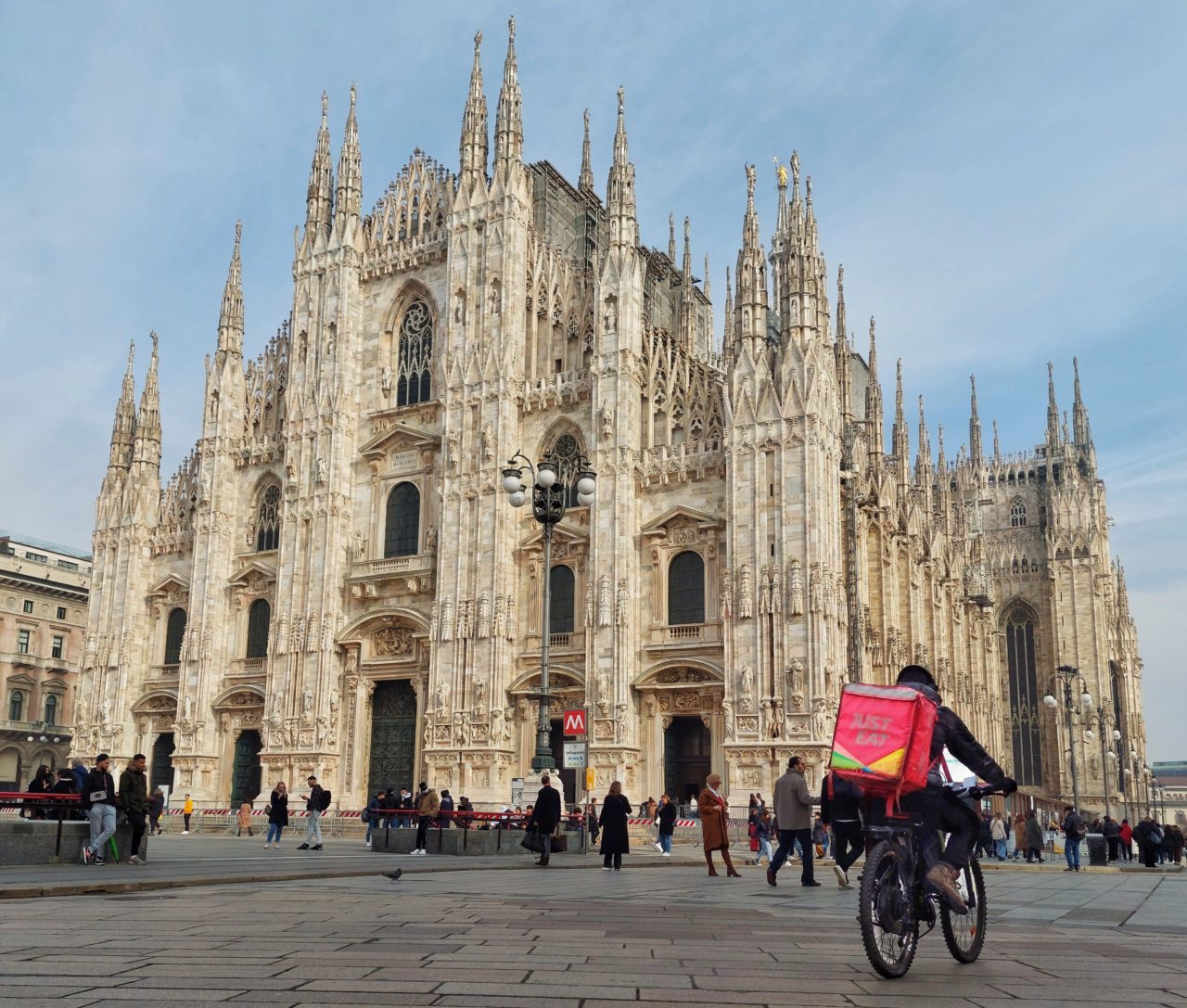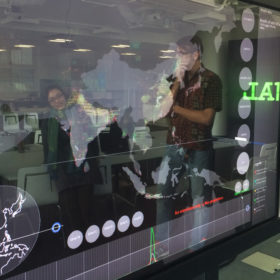
Digital platforms are increasingly present in everyday urban life. This has meant an increasing infrastructuralisation of digital platforms, creating opportunities, but also challenges for cities and governments. During COVID-19, delivery platforms and delivery workers became a staple of urban landscapes, but what has this meant for urban governance?
Whether we need to find a short stay abroad, get a late night ride through the city, or get some food on a lazy Sunday, platforms such as Airbnb, Uber, or Just Eat have a growing presence in our everyday life, acquiring an almost infrastructural role. Digital platforms have tapped into different markets, achieving a global scale, creating billion-dollar businesses extremely quickly, and enabling even further the collection of urban big-data. On-demand delivery platforms belong to the fastest growing businesses during the COVID-19 pandemic. Considering the severe lockdowns under which most of the global urban population found themselves, this sector seized the opportunity to scale-up their global presence.
Taking delivery platforms as an example, we can dwell into some of the challenges that this exponential growth has for urban governance.
Key Urban Challenges for Urban Governance of Platforms
I focus on two challenges for urban governance linked to delivery platforms. The first one is the use of algorithmic management and the optimization of their work force, enabling an intense work pace, which relates to heightened occupational risk for their workers. This discussion became a key aspect in regulatory talks in Europe, with Spain being the first European country to establish a law regulating platform delivery work, addressing two main concerns, starting with the presumption of employment of platform workers, formalizing the labour relations of workers and platforms. The other concern addressed by the regulation is disclosing how algorithmic management affects their working conditions (e.g. hiring, firing, and worker’s profiles), giving them access to critically asses the parameters behind the algorithms. The effects of this law are still unravelling, but it seems to be a first step towards responsible and open use of algorithmic management in labour relations.
A second challenge comes from the territorial presence of platforms in cities. In the case of quick delivery services, they consolidate their presence through «dark stores» or «dark kitchens». This raises questions in relation to land-use in urban settings, considering the grey-area in which they operate. Cities such as Paris or Amsterdam are on the frontline in the regulation of dark-stores, inspecting, limiting, or outright banning their proliferation.
Platforms, fast-paced growth, and ubiquity in everyday life bring without a doubt challenges for urban governance. Therefore, critically addressing these questions allows thinking of a digitally enabled urban future, where sustainable development keeps the social dimensions of urban life at the centre.
 Nicolás Palacios is a PhD student at the chair of Spatial Development and Urban Policy (SPUR), under the supervision of Prof. Dr. David Kaufmann. Nicolás comes from Chile and has a background in urban studies and human geography. Currently, he is studying the role of digital platforms in the production of urban space, as well as their relation to labour and the spatial practices of platform workers.
Nicolás Palacios is a PhD student at the chair of Spatial Development and Urban Policy (SPUR), under the supervision of Prof. Dr. David Kaufmann. Nicolás comes from Chile and has a background in urban studies and human geography. Currently, he is studying the role of digital platforms in the production of urban space, as well as their relation to labour and the spatial practices of platform workers.
